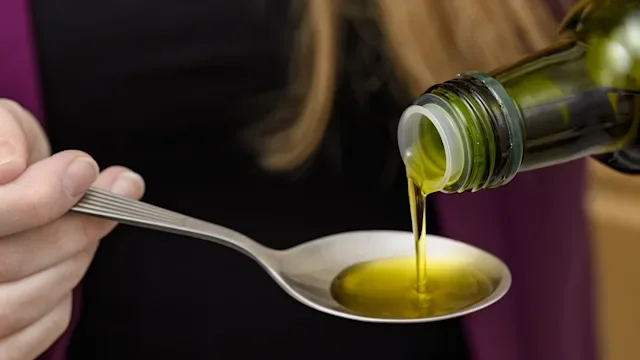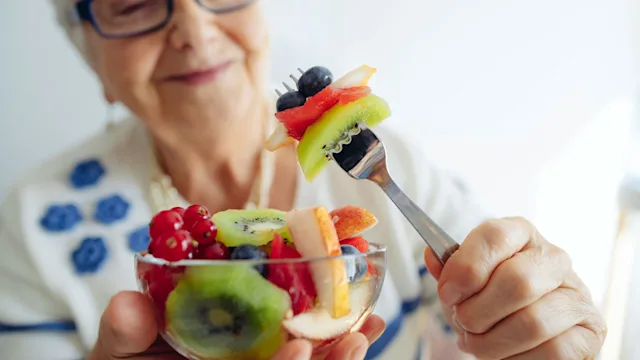Key takeaways:
Sugar alcohols are carbohydrates that are used to sweeten foods. Contrary to what the name suggests, sugar alcohol does not contain alcohol.
Since they don’t raise blood sugar as much, sugar alcohols can be a good option for people with diabetes.
For most people, sugar alcohol may not be bad. But consuming too much may lead to digestive issues, like bloating and diarrhea.
You probably know that sugar isn’t the best thing for your health. But there are so many sugar alternatives available that it can be difficult to know which ones might be best for you.
If you are in the market for a sugar substitute, chances are that you may have come across sugar alcohols. For the most part, sugar alcohols are considered safe and come without many of sugar’s negative effects, but not all sugar alcohols are created equal. Let’s take a closer look.
What is sugar alcohol?
Sugar alcohols are carbohydrates that are used as sweeteners and bulking agents in foods. Some sugar alcohols occur naturally in certain fruits and vegetables, but most are produced from other sugars.
Sugar alcohols are most commonly used as sweeteners, but they are also used to help preserve moisture and improve the texture of foods.
Sugar alcohols have a chemical structure that combines the structure of sugar and alcohol molecules. However, they do not contain the type of alcohol that gets you drunk. Sugar alcohols belong to a class of carbohydrates called “polyols,” which are a type of FODMAP (carbs that aren’t easily absorbed by the small intestine).
The most common sugar alcohols are:
Xylitol
Erythritol
Sorbitol
Maltitol
Mannitol
Lactitol
Isomalt
Hydrogenated starch hydrolysates
Sugar alcohol vs. sugar
Sugar alcohols have a similar chemical structure to sugar, but they provide fewer calories and are slightly less sweet. Some contain zero calories, while others have about ½ to ⅓ as many calories as sugar.
Also, sugar alcohols are not completely absorbed into the bloodstream like regular sugar is. This gives them a lower glycemic index, which means they don’t raise blood sugar levels as much as regular sugar does. Also unlike sugar, sugar alcohols do not cause tooth decay. In fact, xylitol, in particular, has been found to protect the enamel (the surface of the tooth) from bacteria and reduce plaque buildup.
How can you tell if a food contains sugar alcohols?
On packaged foods, reading the ingredients list underneath the nutrition facts label will let you know whether a product contains sugar alcohols. But you won’t always see them listed in the nutrition facts portion of the label. This is because the FDA doesn’t require them to be included there unless the food product is making a health claim.
Read more like this
Explore these related articles, suggested for readers like you.
If sugar alcohols are included in the nutrition facts label, you’ll find them under “total carbohydrates.” And if only one sugar alcohol is used in a product, you may see the specific sugar alcohol listed.
What products contain sugar alcohols?
There are many products that contain sugar alcohols. Examples include:
Many “sugar-free” manufactured products, such as certain cookies, candies, and soft drinks
Many products marketed as “keto friendly”
Some sugar substitutes
Chewing gum
Mints
Toothpaste
Some medicines, such as cough syrup or throat lozenges
Is sugar alcohol bad for you?
With the exception of erythritol, which is best avoided (more on this below), sugar alcohols are usually not bad for you if consumed in moderation. But if you’re consuming too much, or you have underlying digestive issues, then sugar alcohols can cause problematic side effects.
Ultimately, it is healthier to just cut back on sugar in your diet, rather than replacing it with sugar substitutes.
Sugar alcohol benefits
Here are some reasons people opt for sugar alcohols:
Sugar alcohols taste sweet but contain far fewer calories than sugar, which may help with weight management.
Sugar alcohols will not raise your blood sugar much, since they’re not fully digested.
Sugar alcohols won’t cause tooth decay, and some actually improve the health of teeth. This is why they are added to oral care products.
Some sugar alcohols, such as xylitol, serve as prebiotics, which help feed probiotics, or the “good bacteria” in your gut.
Side effects of sugar alcohols
It’s important to be aware of potential drawbacks of sugar alcohols as well. For instance:
Certain sugar alcohols may cause digestive upset for some people, especially those with irritable bowel syndrome (IBS). Eating sugar alcohols may cause symptoms like gas, bloating, and diarrhea. The exception to this is erythritol, which does not get broken down by your large intestine.
Recently, erythritol has been linked to a higher risk of blood clots. Even though more research is needed, if you have or are at risk for heart problems, you may be better off avoiding this particular sugar alcohol.
The sugar alcohol xylitol is highly toxic to dogs and can cause serious health problems or death if accidentally ingested.
Foods containing sugar alcohols tend to be highly processed. Because highly-processed foods are linked to increased appetite, weight gain, and diabetes, it’s best to avoid them altogether.
Is sugar alcohol bad for people with diabetes?
Sugar alcohols are safe to eat for people with diabetes. In fact, since they don’t raise blood sugar very much, sugar alcohols may be a good option for people with diabetes, or anyone trying to control their blood sugar.
However, it is important to remember that even foods that don’t contain sugar can contain carbohydrates, which affect blood sugar levels. It is always important to read the nutrition label on packaged foods to check for carbohydrate count, and to continue monitoring blood sugar levels as indicated.
How much sugar alcohol is too much?
Sugar alcohols are regulated by the FDA and are “generally recognized as safe.” The recommended amount to eat depends on the type of sugar alcohol consumed.
Most sugar alcohols are considered safe if you’re eating around 10 g to 20 g daily, but it varies depending on the type. For example, one review found that sorbitol causes diarrhea if ingested in amounts above 20 g. Xylitol, however, is considered safe as long as you’re eating less than 70 g per day, and some people tolerate up to 200 g daily.
It’s worth noting that larger amounts of sugar alcohol are more likely to cause digestive problems like diarrhea. Here’s how much sugar alcohol is found in some common products:
One stick of gum can contain about 1.25 g of sorbitol.
The toothpaste you use in a day might contain around 0.11 g to 0.25 g of xylitol.
One sugar-free milk chocolate bar can contain as much as 20 g of added sugar alcohols.
Experts do not recommend giving children foods that contain sugar alcohols, because there’s not enough research regarding whether they are safe for kids.
The bottom line
Sugar alcohols have fewer calories and are better for dental health than regular sugar. However, you should still eat them in moderation since some may have side effects like bloating or diarrhea. If you are sensitive to sugar alcohols, it may be best to limit or avoid them. Talking with a trusted healthcare provider may help you determine whether sugar alcohols are a good option for you.

Why trust our experts?



References
Arrigoni, E., et al. (2005). Human gut microbiota does not ferment erythritol. The British Journal of Nutrition.
Awuchi, C. G. (2017). Sugar alcohols: Chemistry, production, health concerns and nutritional importance of mannitol, sorbitol, xylitol, and erythritol. International Journal of Advanced Academic Research.
Fitch, C., et al. (2012). Position of the Academy of Nutrition and Dietetics: Use of nutritive and nonnutritive sweeteners. Journal of the Academy of Nutrition and Dietetics.
Janakiram, C., et al. (2017). Xylitol in preventing dental caries: A systematic review and meta-analyses. Journal of Natural Science, Biology, and Medicine.
Liauw, S., et al. (2019). Sorbitol. Canadian Family Physician.
Mäkinen, K. K. (2010). Sugar alcohols, caries incidence, and remineralization of caries lesions: A literature review. International Journal of Dentistry.
Mäkinen, K. K. (2016). Gastrointestinal disturbances associated with the consumption of sugar alcohols with special consideration of xylitol: Scientific review and instructions for dentists and other health-care professionals. International Journal of Dentistry.
Msomi, N. Z., et al. (2021). Suitability of sugar alcohols as antidiabetic supplements: A review. Journal of Food and Drug Analysis.
SmartLabel. (2022). Hershey’s sugar free milk chocolate bar.
Swerve. (n.d.). What puts the sweet in Swerve Sweetener?
Turska-Szybka, A., et al. (2016). Xylitol content in dental care and food products available on the Polish market and their significance in caries prevention. Dental and Medical Problems.
U.S. Food and Drug Administration. (2020). Sugars That Are Metabolized Differently Than Traditional Sugars.
U.S. Food and Drug Administration. (2021). Interactive nutrition facts label - Sugar alcohols.
Ur-Rehman, S., et al. (2015). Xylitol: A review on bioproduction, application, health benefits, and related safety issues. Critical Reviews in Food Science and Nutrition.
Witkowski, M., et al. (2023). The artificial sweetener erythritol and cardiovascular event risk.
Yale New Haven Health. (n.d.). Eat any sugar alcohol lately? Yale New Haven Hospital.

















